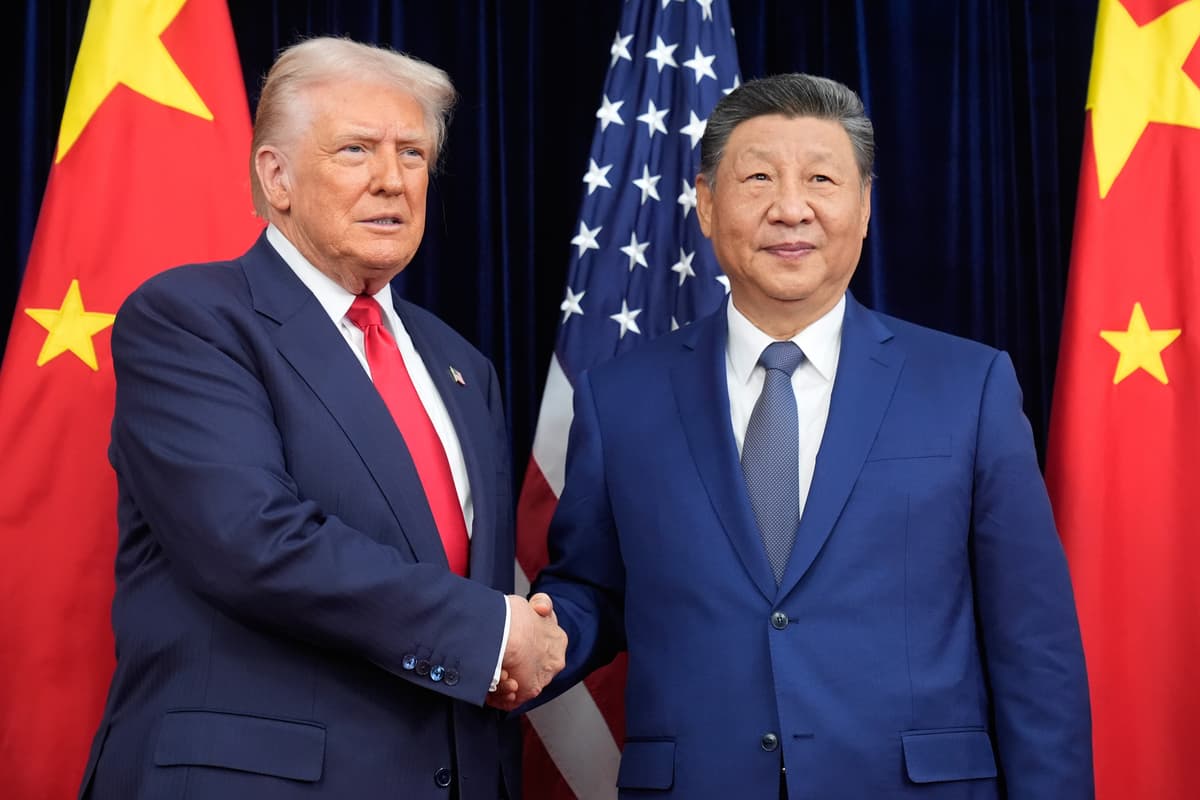Foreign Policy Equals Trade Policy
Recall Reagan’s recommendation regarding the handling foreign adversaries.

Trust, but verify is my response to President Trump’s latest deal making with President Xi Jinping of Communist China.
Of course, that’s always the case with the Chinese, who can never be counted on to keep their promises. Then again, Mr. Trump knows all about that and will unhesitatingly slap high tariffs on China if they break their commitment to stopping fentanyl or holding back rare earth minerals or not purchasing soybeans, oil, or other commodities.
At least for a year, China’s rare earth black mail will stop.
It was seven years ago, at the G-20 at Buenos Aires, Argentina when Mr. Trump first asked Mr. Xi to stop the flow of fentanyl, and Mr. Xi quickly said he would.
That was seven years ago. So here we are again.
And for the sake of preventing hundreds of thousands of more deaths from the deadly drug, hopefully Mr. Xi will keep his promise this time.
Let’s step back for a moment, though. One of Mr. Trump’s great accomplishments in his Southeast Asian trip was basically to use trade deals as a key instrument of foreign policy in order to corner China. Supreme Court, please take notice.
Trade is inseparable from foreign policy. That’s why the International Emergency Economic Powers Act is important in trade deals with Australia, Japan, Vietnam, Malaysia, Cambodia and South Korea, including strict regulations on Chinese trans-shipping. That’s the term for when China tries to route their cheap exports and unfair trading practices hidden via other countries. All that’s been banned in these trade deals.
Australia and Vietnam already have rare earth stockpiles, and the other countries are developing them, as is America.
None of those countries are in love with China.
Surely the Supreme Court will understand that it is the commander-in-chief who holds sway over foreign policy, exactly why he is developing international trade policy.
In some sense, this is the most important point made during this presidential trip.
To be sure, United States-China relations are de-escalating and Chinese tariffs will come down a bit to 47 percent from 57 percent.
There will be no 100 percent tariff surcharge.
The question now is whether this is a new era of Sino-American cooperation. Or another step in a managed de-coupling strategy.
I haven’t heard any discussion about a China cease and desist of Russian oil purchases. We’ll see about that.
It does look like the TikTok deal will go through.
Surely, though, the United States Trade Representative, Jameson Greer, will continue his Section 301 investigation concerning Beijing’s broken promises over the United States-China Phase One Trade Deal signed during Mr. Trump’s first term.
Mr. Trump calls this meeting a 12 out of 10, which is pretty high.
Hope he’s right. But remember Reagan: Trust but verify.
From Mr. Kudlow’s broadcast on Fox Business Network.

